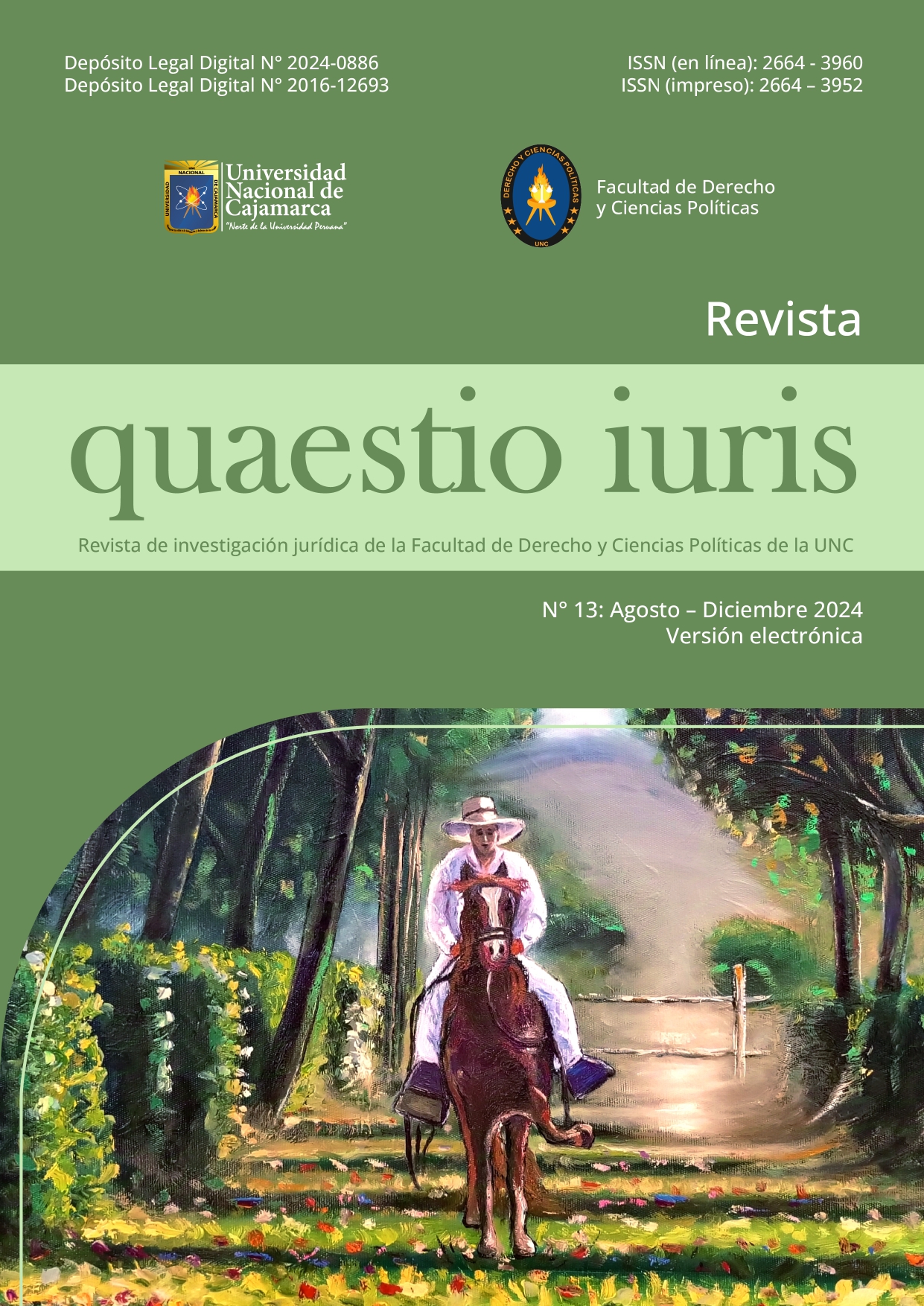La concepción racionalista de valoración probatoria es la más idónea en nuestro sistema de justicia
DOI:
https://doi.org/10.70467/rqi.n13.8Palabras clave:
Hecho, prueba, valoración probatoria, concepción persuasiva, concepción racionalista, código procesal penal peruanoResumen
La valoración de la prueba como parte del derecho constitucional procesal tiene relevancia actual en nuestro sistema de justicia penal. El problema propuesto es por qué la concepción racionalista es la más adecuada para valorar la prueba en el Código Procesal Penal peruano vigente. El objetivo es demostrar que la concepción racionalista es la más adecuada para valorar la prueba. El método adoptado es el analítico con revisión bibliográfica y documental, principalmente textos de leyes, actos normativos constitucionales y jurisprudencia del Tribunal Constitucional Peruano (Ej. STC 1336/2024. Exp. N.°04879-2023-PHC/TC. F.J.16), Corte Suprema y Corte IDH (Corte IDH, Caso Zegarra Marín vs Perú. Párrafos 145 a 147). La conclusión es que en nuestro sistema de justicia penal, la concepción racionalista permite valorar la prueba considerando que todo justiciable tiene “derecho a utilizar las pruebas de que dispone para demostrar la verdad de los hechos que fundan su pretensión, a que sus pruebas sean practicadas en el proceso, a una valoración racional de la prueba y a la motivación de las decisiones judiciales en materia probatoria, la que a su vez permite un control interno y externo, tal como se aprecia en nuestra jurisprudencia interna y externa.
Descargas
Descargas
Publicado
Número
Sección
Licencia
Derechos de autor 2024 Revista quaestio iuris

Esta obra está bajo una licencia internacional Creative Commons Atribución-NoComercial 4.0.










